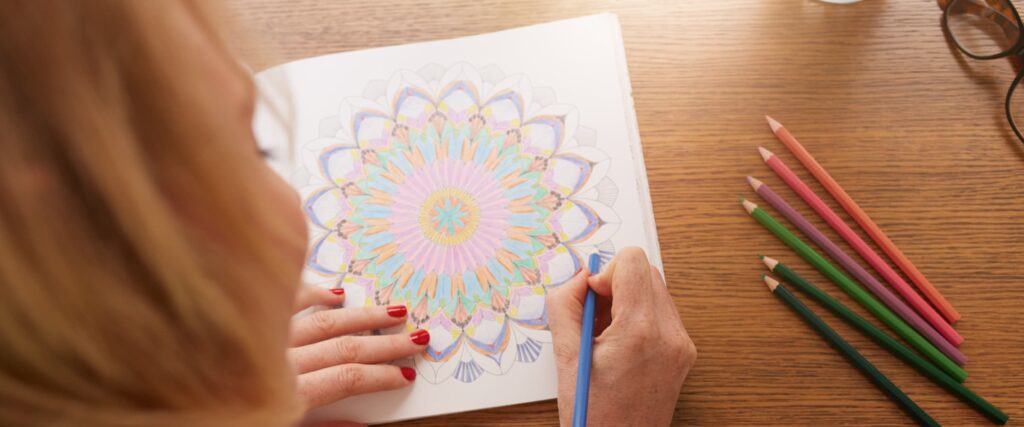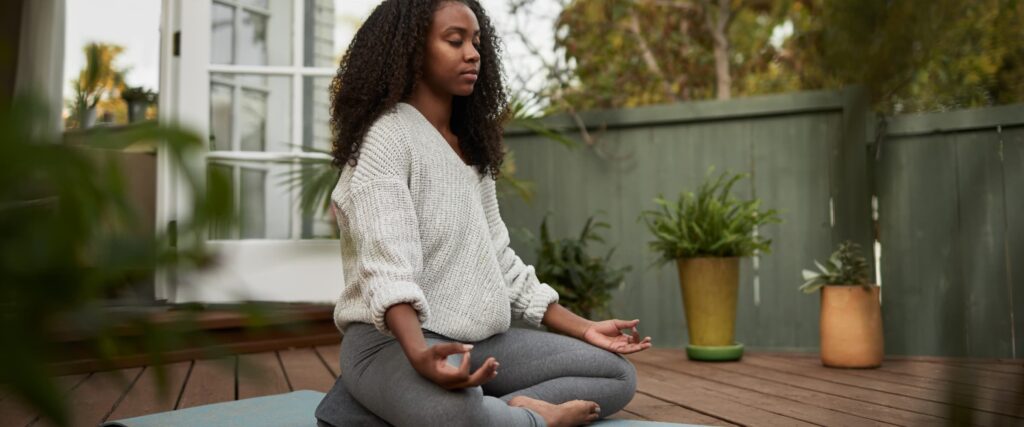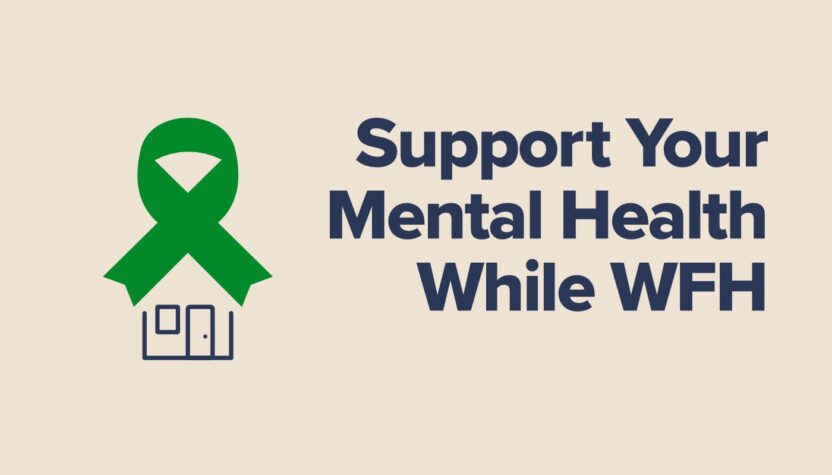While many find flexibility and comfort working from home, some struggle with the isolation and repetitive nature of working away from the office. This can affect mental and physical health in the process.
Through scientific research and our understanding of setting work-from-home boundaries, we’ve provided a list of tools and strategies to help support your mental awareness.
Prioritize Your Physical Health

From drinking water to eating nutritious foods and exercising, taking care of your physical health also benefits your mental health. When our bodies feel better, our brains reap the rewards.
Movement increases the natural chemicals critical to healthy brain functioning, including endorphins serotonin, and dopamine. Regular daily movement like alternating between sitting and standing as you work helps increase these chemicals and reduce the negative effects of stress and pain. One study found that those who regularly exercise are less likely to have depression, panic disorder and phobias.
Try taking a walk, getting outside and drinking plenty of water. While sometimes it can be hard to motivate yourself to move, the reward will be worth it. And don’t forget about your sleep hygiene. According to Sleep Foundation, poor sleep, including insomnia, can be a contributing factor to increased anxiety and depression. Try using your reduced commute time to catch a few extra z’s.
Write or Draw it Out

Journaling and coloring can be effective forms of self-expression and release—even if you aren’t the best artist or aren’t known for your way with words. Adult coloring books can be a fun and easy way to relax for a few moments. There is also a wide range of guided journaling books to help you get out what’s bottled up. During your next lunch break, try taking 15-20 minutes to write or draw to help clear your mind and feel more refreshed.
Meditate

Working from home makes taking a meditation break easier than ever. Starting your day with a 10-minute guided meditation can clear your head and block out the noise that surrounds you. If you’re new to meditation, know that it takes time to learn how to do it. Many times people give up on meditation quickly because they find themselves losing concentration or things don’t “click” instantly. Know that meditation is a journey and you should practice regularly.
How to start? YouTube has thousands of free videos and there are great, affordable apps to download like Headspace and Calm for a more structured journey.
Talk it Out

Getting out of the house to see and talk to people has been difficult during different phases of lockdowns and restrictions. While everyone’s circumstances are different, talking about your needs and struggles can help you find peace. There are great online tools to connect you with a trusted professional. You could also confide in a friend or family member to help you process how you’re feeling.
If you’re not comfortable sharing, surround yourself with good people—people who lift you up and radiate positivity. Their infectious attitude will make an impact.
Mental health is just like your physical health—it requires maintenance and good habits. Some days are great and other days are tough, but consistency is key to getting on the right path.
We want to raise awareness of mental health by sharing tips to help our employees and customers thrive. We recognize that this is a serious issue that may need assistance from a qualified medical professional. For more information and more tips, visit https://www.mhanational.org/mental-health-month.
If you’re experiencing a mental health emergency, please call 1-800-273-TALK (8255) to reach a 24-hour crisis center, text MHA to 741741, call 911, or go to the nearest emergency room.



